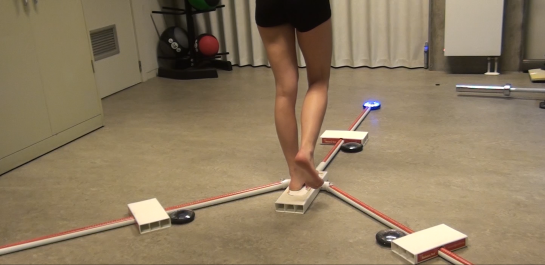
Our recent publication "Deficits in neurocognitive performance in patients with chronic ankle instability during a neurocognitive balance task - A retrospective case-control study" sheds light on the neurocognitive aspects of chronic ankle instability, a common complication following ankle sprains. Our study highlights the complex relationship between cognitive function and physical stability, with potential impact on rehabilitation strategies for these patients.
In a study involving 27 patients with chronic ankle instability and 21 healthy recreational athletes, neurocognitive performance during balance tasks was analysed. Notable was lower accuracy in the patient group during the reactive balance test (a dynamic balance test), which may indicate problems with environmental perception and decision-making under pressure in the context of sport. Return to sport and rehabilitation programmes may need to focus more on these cognitive aspects to improve ankle functionality and prevent injury. Future research should look more broadly at cognitive domains and use prospective samples for more in-depth insights.
Consult the full publication at the following link: https://www.sciencedirect.com/science/article/pii/S1466853X23001566?dgcid=coauthor
This study was partly supported by the Luxembourg Institute of Research in Orthopaedics, Sports Medicine and Science (LIROMS) and by the Luxembourg Institute of Health (LIH).
